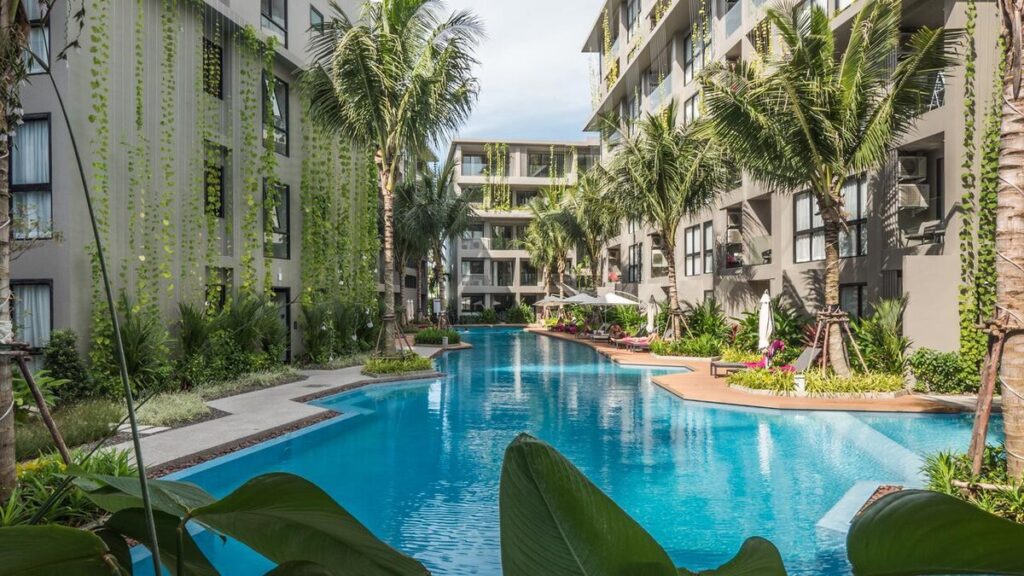Phuket: Buying a Condo or Leasehold Property as a Foreigner

In Phuket foreigners can own freehold condominiums within the 49% building quota, granting outright legal title and easier resale, while leasehold properties (villas, houses, or condos beyond the foreign quota) only give you the right to use the property for up to 30 years—renewable by contract but never permanent. Freehold condo ownership is more secure, widely preferred by expats and investors, and can be willed to heirs, while leasehold is primarily an option for landed villas or condos when the foreign quota is full, and its value declines as time passes or if renewals are uncertain.
Phuket is one of Southeast Asia’s most attractive real estate markets, drawing buyers worldwide with its beautiful beaches, friendly community, and robust rental demand. While both freehold condos and leasehold properties are popular among foreigners, each route has its own legal rules, risks, and investment prospects. This guide explains how the process and implications differ for foreigners buying a condo versus a leasehold property in Phuket in 2025.
Overview
Thailand’s property laws generally prohibit foreigners from owning land, but they allow foreign freehold ownership in registered condominiums (up to 49% per project) and leaseholds for up to 30 years—renewable by contract.
Buying a Condo as a Foreigner in Phuket
- Foreigners can buy and fully own a freehold condo unit, provided the foreign quota (49%) is not exceeded.
- Ownership is secured with a separate strata title deed (“Chanote”).
- Funds for the purchase must come from overseas and be properly documented for legal compliance.
- Condos can be resold or passed to heirs, offering liquidity and long-term security.
- Monthly fees apply for building management and amenities.
- Some banks offer mortgages to foreigners for condos, though with stricter requirements.
Buying a Leasehold Property as a Foreigner in Phuket
- Leasehold lets you secure a house, villa, or condo (when foreign quota is full) on a long-term lease—maximum 30 years, typically with the option to renew twice for an additional 60 years (not a legal guarantee).
- A registered lease contract is filed at the Land Office; buildings may be owned separately via “superficies” rights.
- Leaseholds may have lower up-front cost, but become less valuable as the lease term shortens.
- Renewals depend on owner willingness and reliable contracts, making legal guidance essential.
- Resale value is lower than freehold, as only residual years of the lease can be sold.
- Leaseholds are not as easily inherited or financed compared to freehold condos.
Key Comparisons: Condo (Freehold) vs. Leasehold
| Characteristic | Condo (Foreign Freehold) | Leasehold Property |
|---|---|---|
| Ownership | Outright title to unit, not land | Right to use/occupy for set term |
| Duration | Unlimited (subject to 49% quota) | 30 years, with contractual renewals |
| Resale | Strong, easier for buyers | Declines with fewer years left |
| Security & Stability | Very high (protected by condo law) | Moderate—contract dependent |
| Eligible Properties | Condos in foreign quota | Villas, land, condos (Thai quota) |
| Inheritance | Yes, passable to heirs | Uncertain, subject to lease |
| Financing | Some bank options available | Rare, mostly cash purchases |
Which Is Right for You?
- Choose a Phuket condo (foreign freehold) for security, capital appreciation, and peace of mind.
- Consider leasehold if you seek a stand-alone villa, can accept limited tenure, and value lifestyle over long-term gains.
FAQs
- Can foreigners own land in Phuket? No—only via leasehold. Villas on land can be leased but not owned outright.
- Are leasehold renewals guaranteed? No—renewal depends on contract terms and owner reliability.
- Is freehold always better? For long-term investment or inheritance, yes; but leasehold gives short/medium-term lifestyle flexibility.





